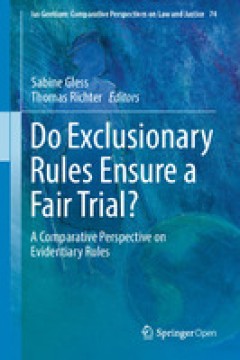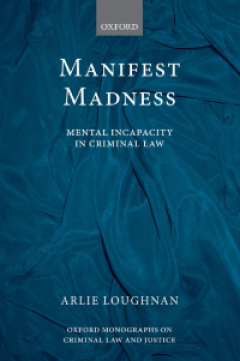Ditapis dengan

Do Exclusionary Rules Ensure a Fair Trial?: A Comparative Perspective on Evid…
This book discusses exclusionary rules in different criminal justice systems. It is based on the findings of a research project in comparative law with a focus on the question of whether or not a fair trial can be secured through evidence exclusion. Part I explains the legal framework in which exclusionary rules function in six legal systems: Germany, Switzerland, People’s Republic of China, …
- Edisi
- -
- ISBN/ISSN
- 978-3-030-12520-2
- Deskripsi Fisik
- 387 hlm.
- Judul Seri
- -
- No. Panggil
- -

Contested Justice: The Politics and Practice of International Criminal Court …
The International Criminal Court emerged in the early twenty-first century as an ambitious and permanent institution with a mandate to address mass atrocity crimes such as genocide and crimes against humanity. Although designed to exercise jurisdiction only in instances where states do not pursue these crimes themselves (and are unwilling or unable to do so), the Court's interventions, particul…
- Edisi
- -
- ISBN/ISSN
- 978-1-139-92452-8
- Deskripsi Fisik
- 526 hlm.
- Judul Seri
- -
- No. Panggil
- -

Manifest Madness: Mental Incapacity in the Criminal Law
Whether it is a question of the age below which a child cannot be held liable for their actions, or the attribution of responsibility to defendants with mental illnesses, mental incapacity is a central concern for legal actors, policy makers, and legislators when it comes to crime and justice. Understanding the terrain of mental incapacity in criminal law is notoriously difficult; it involves t…
- Edisi
- -
- ISBN/ISSN
- 978-0-19-969859-2
- Deskripsi Fisik
- 307 hlm.
- Judul Seri
- -
- No. Panggil
- -
 Karya Umum
Karya Umum  Filsafat
Filsafat  Agama
Agama  Ilmu-ilmu Sosial
Ilmu-ilmu Sosial  Bahasa
Bahasa  Ilmu-ilmu Murni
Ilmu-ilmu Murni  Ilmu-ilmu Terapan
Ilmu-ilmu Terapan  Kesenian, Hiburan, dan Olahraga
Kesenian, Hiburan, dan Olahraga  Kesusastraan
Kesusastraan  Geografi dan Sejarah
Geografi dan Sejarah